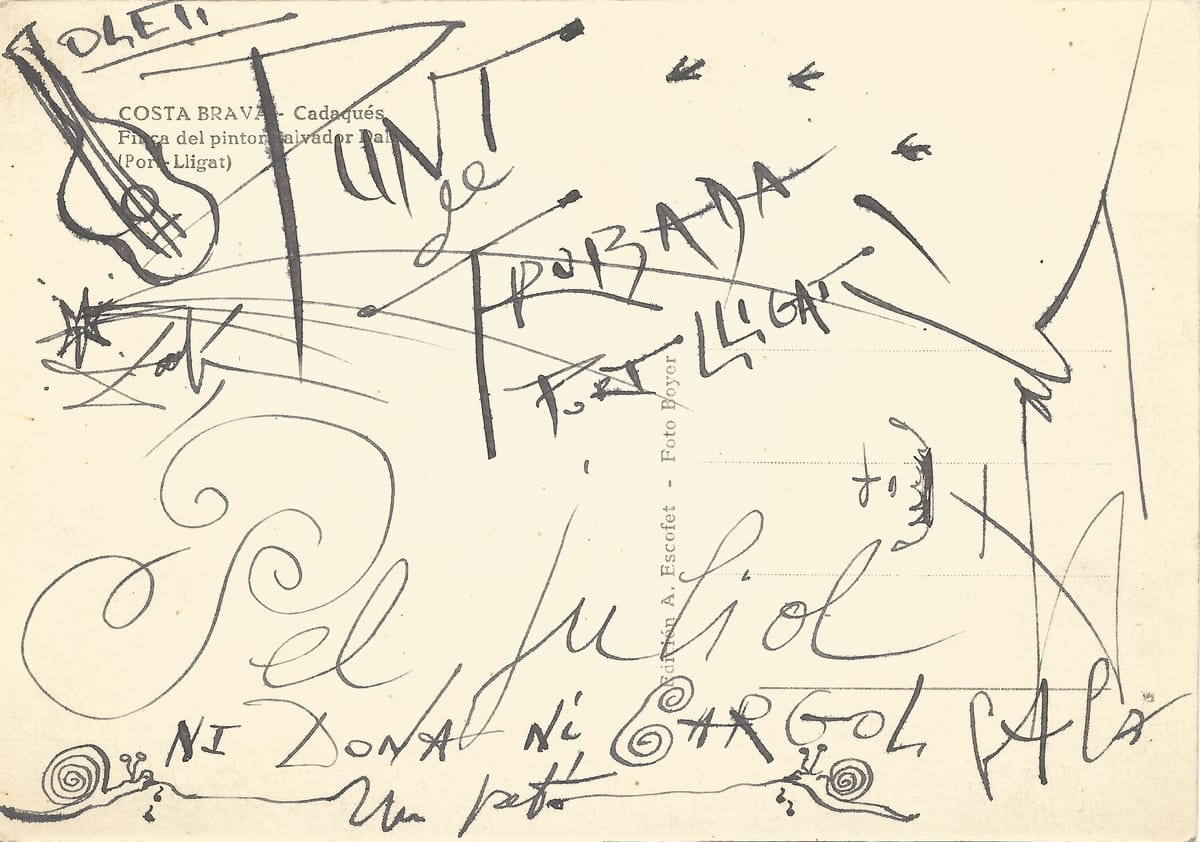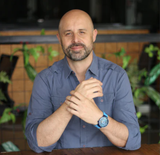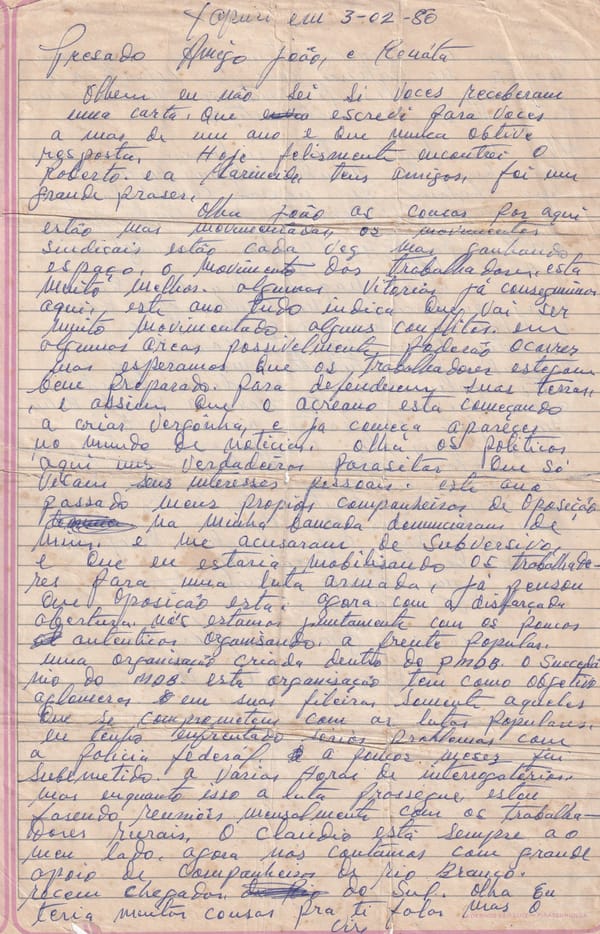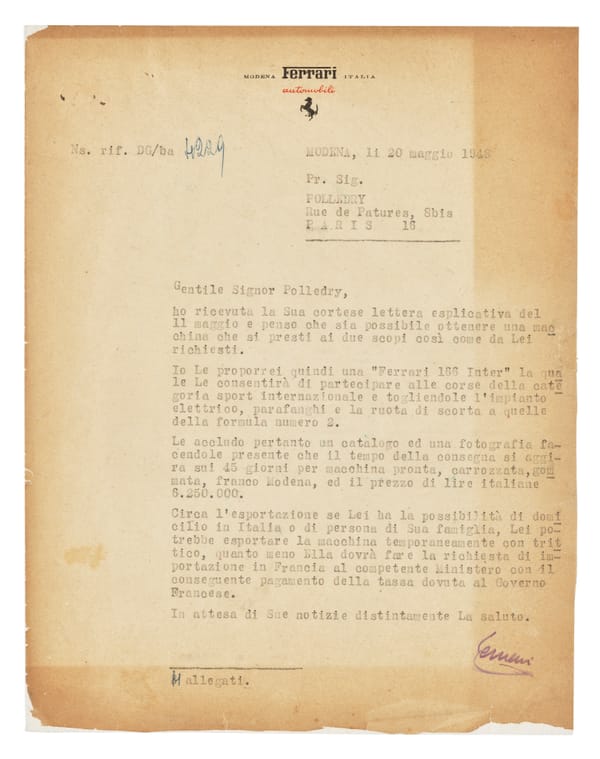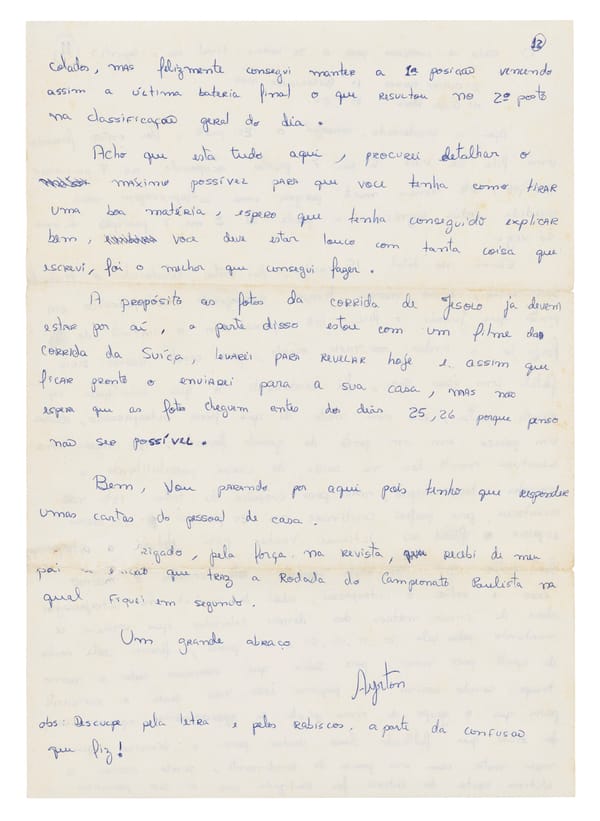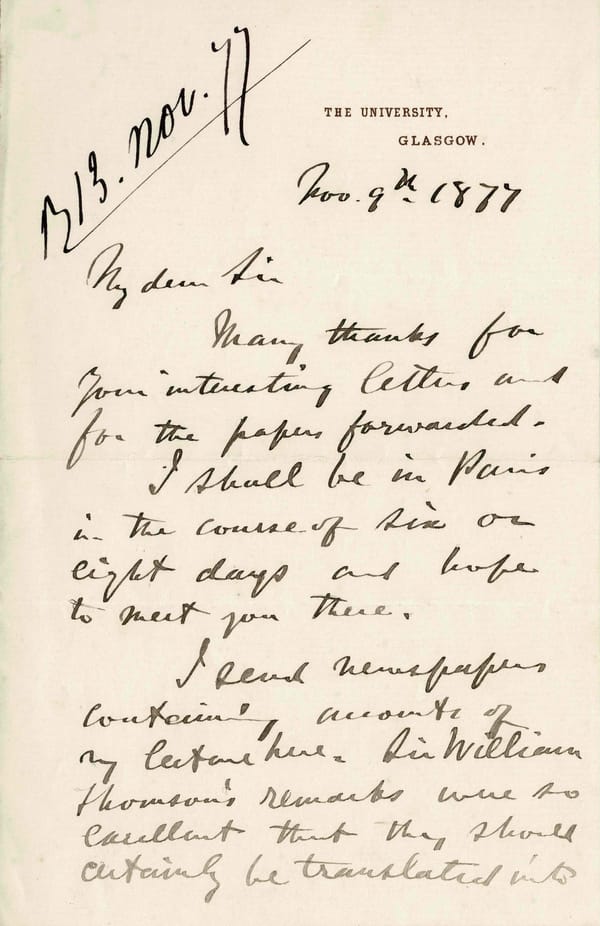When Dalí wrote to his best enemy, Picasso
Dalí often wrote to Picasso, seeking closeness through shared memories. This postcard, with playful drawings and a cryptic Catalan phrase, is a vivid example, blending nostalgia, obsession, and Dalí’s surreal style in a one-sided dialogue with his unresponsive idol.
